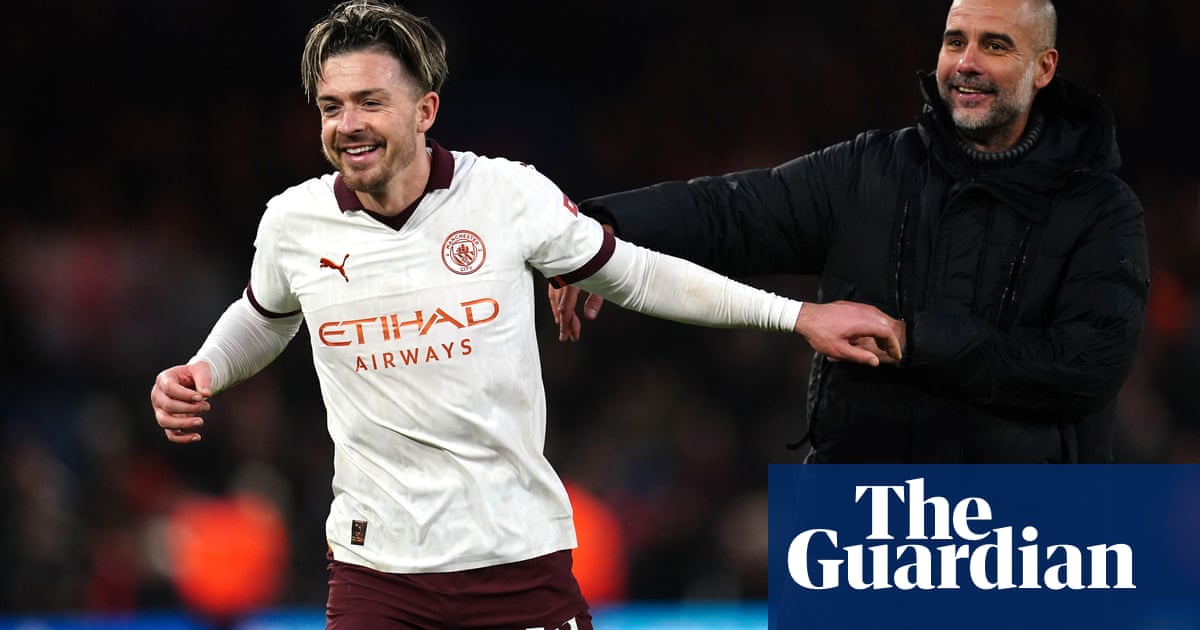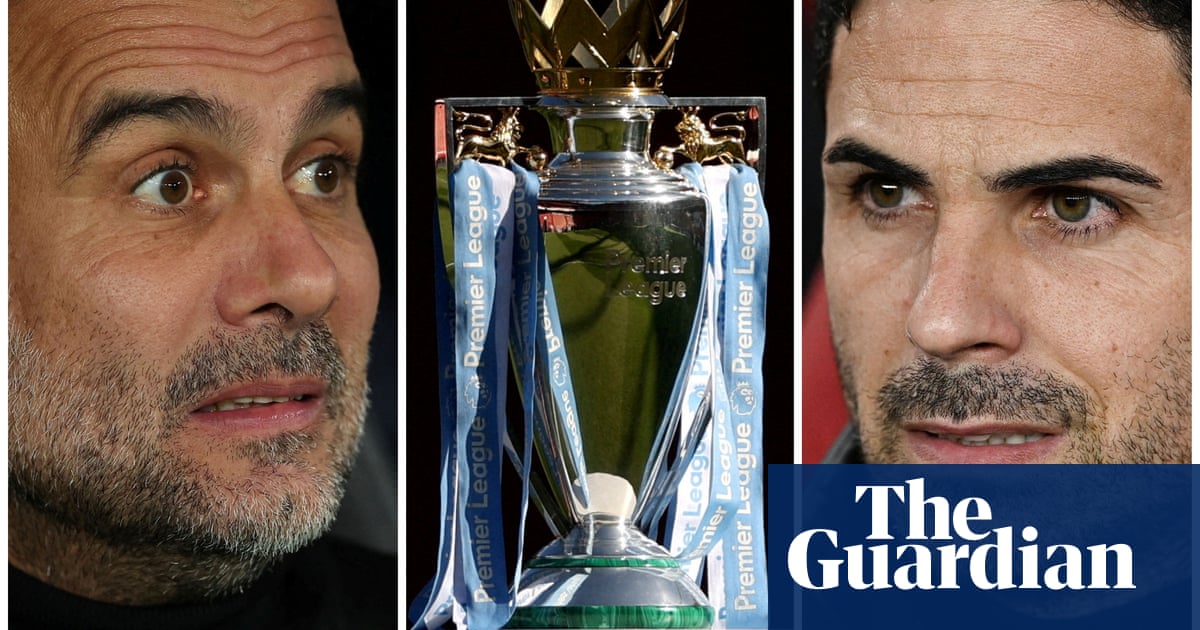
Immediately after Saturday’s strikingly beautiful demolition of Stoke City, which came if you remember a couple of hours after Manchester United’s exercise in cautious negativity at Anfield, Pep Guardiola was asked whether he would always insist on his Manchester City team being committed to entertaining football.
No, came the somewhat surprising answer. “I am not here for entertainment. I am here to win.”
Surprising in that it could have been José Mourinho uttering the same sentiment, and similarities in footballing outlook between the two managers are not always that easy to detect. Surprising because you don’t generally build a team around Kevin De Bruyne and David Silva, with Leroy Sané and Raheem Sterling as wide options and either Gabriel Jesus or Sergio Agüero in the middle, and expect the results to be boring. Surprising, too, because neither Barcelona nor Bayern Munich, Guardiola’s previous two teams, were rarely anything other than highly watchable. And, while it could be argued that Guardiola was just being realistic and acknowledging that every manager’s job is to win matches, this particular manager is not usually one to follow the crowd or deal in predictable cliches.
Yet Guardiola liked the statement so much he repeated it in his programme notes for the Napoli game, which City did win but by nothing like the distance originally envisaged. He appeared to be warning people that entertainment was not an objective in itself, merely a by-product of a particular way of playing to win. He is probably right there. Another thing he said after the 7-2 victory over Stoke, in which six different players scored, was that it was probably the best team performance he had witnessed since arriving in Manchester, because his side “played simple and played quick”. That was true enough, and when you have the above cast augmented by Fernandinho and Kyle Walker playing simple and quick it is a recipe for goals and entertainment, as even Mark Hughes admitted.
It would be easy to look at the narrow 2-1 victory over Napoli and attribute the difference in scorelines to the fact that the team at the top of Serie A are bound to be a tougher proposition in a Champions League group game than Stoke. To an extent it would be true; Napoli showed commendable commitment and resilience in pulling themselves back from the brink to a point where they could easily have claimed a draw, though it could equally be said that City’s will to win deserted them midway through the first half. With a bit more luck – De Bruyne hitting the bar, shots being stopped on the line – City might have been out of sight before half-time, but when Napoli somehow managed to restrict the initial onslaught to only a couple of goals conceded the home side’s attacking drive seemed to stall.
Perhaps it did not help that Sané was having an off-day and Silva picked up a knock, but once Napoli escaped from under the cosh they worked out quite quickly that City could be put under pressure at the back. Both sides set out with the intention of using a high press, but whereas City’s worked like a dream in the first half-hour, it was Napoli’s that became more effective after the interval. The more City attempted to play out from the back, the more Marek Hamsik and his pals saw an opportunity to intervene, and the more they succeeded. So much so that Guardiola was forced to defend his strategy afterwards, arguing that it would have been suicidal to play long balls against Napoli, because then “they are back attacking in two seconds”. Although that might be perfectly true, putting together around half a dozen short passes at the back between players who did not quite seem to have the confidence or control to play their way out of trouble appeared to be an equally reliable way of putting Napoli back on the attack, this time nearer to goal.
The point is that a long ball over the press is not always a sign of a limited or unimaginative side; it is a legitimate tactic that can be effective against pressing teams who send players high up the pitch to win back possession. Play the right ball, ie not an aimless hoof downfield, and it is possible to leave any number of opponents stranded at the wrong end of the pitch. Both Guardiola and Jürgen Klopp came to this country with reputations for high pressing, and both have had to adapt to British conditions. Partly because the tempo of games here tends to be higher anyway, and partly because teams such as West Bromwich Albion have worked out how to escape the press by playing balls over the top.
So it was a little odd to hear Guardiola insisting on a strategy that was not working. If he firmly believes that City must learn to play out from the back then fair enough – by the time they can do it they will be a force of nature at both ends of the pitch. If you are good enough to play through the press it can be advantageous, not to say entertaining, but if you are hesitant it is a high-risk ploy that other sides will soon sniff out. Other options are available, and unless City can get their act together fairly quickly future Champions League opponents will once again be targeting their defence as a possible weak spot, even though the acquisition of Ederson has settled down the back line noticeably since last season.
What was interesting on Tuesday was that Guardiola himself chose to speak of long balls. He seems to regard them as a badge of dishonour, whereas in reality the ball you are looking for is the right ball, long, short or medium. The one that releases the pressure, not the one that offers encouragement to the opponent. No one would accuse Guardiola of being a long-ball merchant just on account of his defenders occasionally playing a clearing pass rather than a close one, and you would think a coach committed to winning rather than entertaining would be open to the idea. Most of the other managers in the Premier League cottoned on years ago.The Guardian Sport












